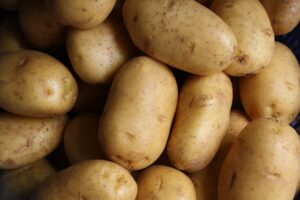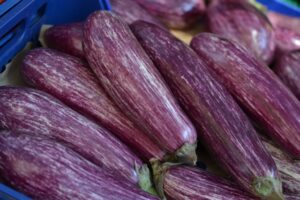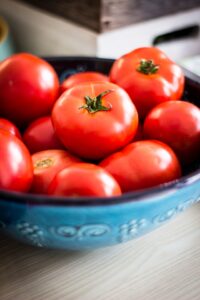Are Nightshade Vegetables Increasing Your Pain and Inflammation?
 On the surface nightshade vegetables seem great, they have vibrant colors, diverse flavors and are known to contains some beneficial vitamins, like vitamin C. Tomatoes, potatoes, eggplants, and peppers are staples in many food cultures and have great adaptability and flavor, but they also have a dark side… Could these seemingly innocent vegetables be contributing to your pain and inflammation?
On the surface nightshade vegetables seem great, they have vibrant colors, diverse flavors and are known to contains some beneficial vitamins, like vitamin C. Tomatoes, potatoes, eggplants, and peppers are staples in many food cultures and have great adaptability and flavor, but they also have a dark side… Could these seemingly innocent vegetables be contributing to your pain and inflammation?
Emerging evidence suggests that, for some individuals, nightshades may trigger or worsen pain and inflammatory conditions. In this post, we explore the potential connection and offer insights on how to better manage inflammation.
What Are Nightshade Vegetables?
Nightshades belong to the Solanaceae family and include common vegetables like:
- Tomatoes
- Potatoes (not sweet potatoes)
- Eggplants
- Bell peppers and hot peppers
 These vegetables are rich in vitamins, minerals, and antioxidants. However, they also contain naturally occurring compounds called alkaloids, which can cause adverse reactions in sensitive people. Specifically nightshades contain the alkaloids solanine, capsaicin, and nicotine. While these compounds serve as natural pesticides for the plant, they can be problematic for certain individuals. Solanine, in particular, has been linked to increased inflammation and joint pain. For people with autoimmune conditions or chronic pain, these alkaloids may overstimulate the immune system, leading to heightened pain sensitivity and inflammatory responses. In the truly poisonous members of the nightshade family like Deadly nightshade (belladonna) these chemicals are so concentrated that they have deadly effects on humans, but in the edible nightshades, they’re present in much smaller amounts, and mostly in the leaves and stems (which we don’t eat anyway).
These vegetables are rich in vitamins, minerals, and antioxidants. However, they also contain naturally occurring compounds called alkaloids, which can cause adverse reactions in sensitive people. Specifically nightshades contain the alkaloids solanine, capsaicin, and nicotine. While these compounds serve as natural pesticides for the plant, they can be problematic for certain individuals. Solanine, in particular, has been linked to increased inflammation and joint pain. For people with autoimmune conditions or chronic pain, these alkaloids may overstimulate the immune system, leading to heightened pain sensitivity and inflammatory responses. In the truly poisonous members of the nightshade family like Deadly nightshade (belladonna) these chemicals are so concentrated that they have deadly effects on humans, but in the edible nightshades, they’re present in much smaller amounts, and mostly in the leaves and stems (which we don’t eat anyway).
Who is Most Commonly Affected?
Not everyone reacts negatively to nightshade vegetables, but those with specific health conditions may be more susceptible, including:
- Rheumatoid arthritis sufferers
- Individuals with other autoimmune diseases (e.g., lupus)
- People experiencing chronic muscle or joint pain
Signs Nightshades May Be Affecting You:
 If you consume nightshades regularly and notice any of the following symptoms, there may be a connection:
If you consume nightshades regularly and notice any of the following symptoms, there may be a connection:
- Joint pain, inflammation or stiffness, often in the morning, especially those cases of joint pain that “feel like arthritis”
- Muscle pain that extends to the joints
- Digestive issues such as bloating, gas and acid reflux
- Headaches or brain fog
Should You Eliminate Nightshades?
If you suspect nightshades might be worsening your symptoms, consider trying an elimination diet. Remove all nightshade vegetables from your meals for at least three to four weeks, then reintroduce them one by one to see if symptoms return. It’s crucial to monitor your body’s reactions closely. Keeping a food diary can help you track any changes in pain or inflammation levels.
Alternatives to Nightshade Vegetables:
If you decide to eliminate nightshades, you can replace them with nutritious alternatives and without the inflammatory alkaloids:
- Sweet potatoes instead of white potatoes
- Cauliflower in place of eggplant
- Leafy greens for vitamin-rich salads
- Zucchini as a substitute in stir-fries and casseroles
In conclusion, nightshade vegetables are nutritious and delicious but may cause inflammation for some people. If you suspect they are contributing to your pain and inflammation, consider an elimination diet to assess your sensitivity. Pairing dietary changes with acupuncture treatment can provide a holistic approach to managing pain and inflammation.
